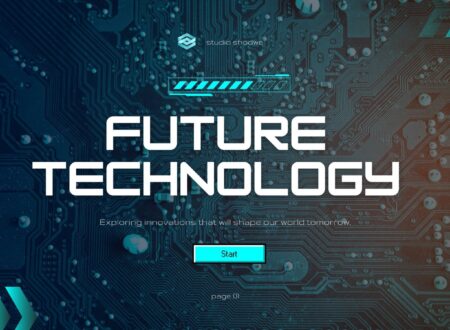Automation is no longer the stuff of science fiction or distant speculation. It’s here—and it’s changing everything. From self-checkout kiosks and robotic assembly lines to AI-driven customer service and data analysis tools, the wave of automation is touching virtually every industry. While automation brings efficiency and innovation, it also raises one major question for workers everywhere: Is my job safe?
What Is Automation?
Automation refers to the use of technology to perform tasks with minimal human intervention. This can range from simple mechanical processes to complex decision-making powered by artificial intelligence (AI) and machine learning (ML). Over the last few decades, automation has evolved from basic robotic arms on factory floors to intelligent systems capable of analyzing data, making decisions, and even learning from experience.
The Acceleration of Automation
Several factors have accelerated the growth of automation:
- Advancements in Technology – AI, robotics, big data, and cloud computing have enabled machines to do what once seemed impossible.
- Labor Shortages – Post-pandemic labor gaps and rising wages have driven companies to seek alternatives to human workers.
- Cost Efficiency – Machines don’t need breaks, insurance, or sick leave, making them an attractive long-term investment.
- Global Competition – Companies are under pressure to reduce costs and increase productivity to stay competitive in a global market.
As a result, sectors once considered immune to automation—like retail, logistics, and even some creative fields—are feeling the pressure.
Jobs Most at Risk
Not all jobs are equally vulnerable. Roles that involve repetitive, predictable tasks are the first in line for automation. Here are a few examples:
- Manufacturing & Assembly Line Work: Robots can perform tasks faster and more accurately than humans.
- Transportation: Self-driving vehicles threaten jobs in trucking, delivery, and even public transportation.
- Customer Service: AI chatbots can handle basic queries, reducing the need for large call centers.
- Retail: Self-checkout machines and automated inventory systems are replacing store clerks and stockers.
- Data Entry & Basic Accounting: Software can now process invoices, reconcile accounts, and input data with minimal oversight.
According to a report by McKinsey, up to 30% of current work activities could be automated by 2030, affecting hundreds of millions of jobs globally.
Jobs That Are Safe (For Now)
While automation is powerful, there are areas where humans still have the edge—at least for now:
- Healthcare & Nursing: Robots can assist, but empathy, critical thinking, and human interaction remain vital.
- Creative Professions: Artists, writers, designers, and content creators bring originality and emotion that AI still struggles to replicate fully.
- Skilled Trades: Electricians, plumbers, and mechanics often perform complex, variable tasks that require hands-on problem-solving.
- Education & Training: Teaching involves adaptability and human connection, though digital tools are playing a growing role.
- Leadership & Strategy Roles: Decision-making, team leadership, and business development often require a nuanced understanding of context and emotion.
Jobs that combine creativity, interpersonal skills, and complex problem-solving are currently less likely to be replaced.
The Changing Nature of Work
It’s important to recognize that automation doesn’t always eliminate jobs—it often transforms them. For example:
- A factory worker may shift to overseeing machines rather than assembling products.
- A customer service rep may focus on handling more complex cases while bots handle FAQs.
- A data analyst might use AI to gather insights, allowing them to focus on strategy and interpretation.
The key is adaptability. Workers who are open to learning new tools and evolving with technology are more likely to thrive.
What Can You Do to Future-Proof Your Career?
The fear surrounding automation is valid—but it doesn’t mean you’re powerless. Here are steps you can take to safeguard your career:
1. Upskill and Reskill
Invest in your professional development. Learn how to use new tools, platforms, or software in your field. Online courses, bootcamps, and certification programs make it easier than ever to stay current.
2. Embrace Lifelong Learning
Technology evolves quickly. A mindset of continuous learning ensures you remain adaptable and relevant.
3. Develop Soft Skills
Communication, emotional intelligence, leadership, and collaboration are skills machines can’t replicate easily.
4. Stay Tech-Savvy
Even if you’re not a coder, understanding how digital tools impact your industry can set you apart.
5. Be Open to Change
Industries will shift. Roles will evolve. Being flexible and forward-thinking can turn potential threats into opportunities.
The Human Advantage
At the end of the day, automation is a tool—one that, when used wisely, can elevate human capabilities rather than replace them. The future of work won’t be about humans versus machines, but humans working with machines to achieve more.
Those who learn to collaborate with technology, rather than resist it, will be the ones who succeed.
Final Thoughts
Automation is reshaping the job market, but it doesn’t have to spell doom for your career. By staying informed, developing in-demand skills, and embracing innovation, you can secure your place in the workforce of the future.
So, is your job safe? Maybe. Maybe not. But with the right mindset and preparation, you can be.





